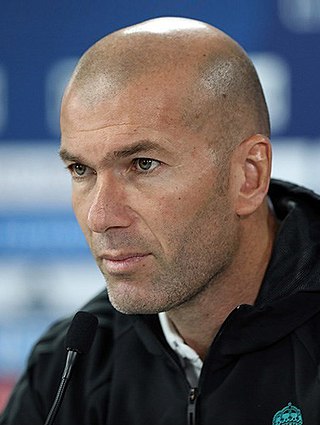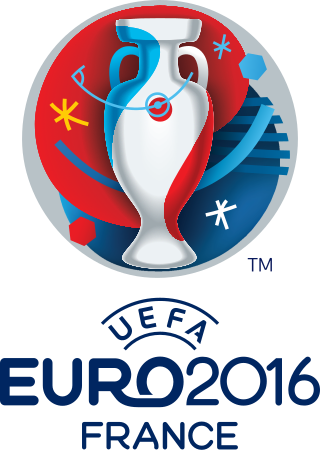
French is a Romance language of the Indo-European family. It descended from the Vulgar Latin of the Roman Empire, as did all Romance languages. French evolved from Gallo-Romance, the Latin spoken in Gaul, and more specifically in Northern Gaul. Its closest relatives are the other langues d'oïl—languages historically spoken in northern France and in southern Belgium, which French (Francien) largely supplanted. French was also influenced by native Celtic languages of Northern Roman Gaul like Gallia Belgica and by the (Germanic) Frankish language of the post-Roman Frankish invaders. Today, owing to the French colonial empire, there are numerous French-based creole languages, most notably Haitian Creole. A French-speaking person or nation may be referred to as Francophone in both English and French.

The French Revolution was a period of political and societal change in France that began with the Estates General of 1789, and ended with the coup of 18 Brumaire in November 1799 and the formation of the French Consulate. Many of its ideas are considered fundamental principles of liberal democracy, while its values and institutions remain central to modern French political discourse.

Louis XIV, also known as Louis the Great or the Sun King, was King of France from 1643 until his death in 1715. His verified reign of 72 years and 110 days is the longest of any sovereign. Although Louis XIV's France was emblematic of the Age of Absolutism in Europe, the King surrounded himself with a variety of significant political, military, and cultural figures, such as Bossuet, Colbert, Louvois, Le Brun, Le Nôtre, Lully, Mazarin, Molière, Racine, Turenne, Condé, and Vauban.

Monaco, officially the Principality of Monaco, is a sovereign city-state and microstate on the French Riviera a few kilometres west of the Italian region of Liguria, in Western Europe, on the Mediterranean Sea. It is a semi-enclave bordered by France to the north, east and west. The principality is home to 38,682 residents, of whom 9,486 are Monégasque nationals; it is recognised as one of the wealthiest and most expensive places in the world. The official language is French; Monégasque, English and Italian are spoken and understood by many residents.

Paris is the capital and largest city of France. With an official estimated population of 2,102,650 residents as of 1 January 2023 in an area of more than 105 km2 (41 sq mi), Paris is the fourth-largest city in the European Union and the 30th most densely populated city in the world in 2022. Since the 17th century, Paris has been one of the world's major centres of finance, diplomacy, commerce, culture, fashion, and gastronomy. For its leading role in the arts and sciences, as well as its early and extensive system of street lighting, in the 19th century, it became known as the City of Light.

The Tour de France is an annual men's multiple-stage bicycle race held primarily in France. It is the oldest of the three Grand Tours and is generally considered the most prestigious.

Charles André Joseph Marie de Gaulle was a French army officer and statesman who led the Free French Forces against Nazi Germany in World War II and chaired the Provisional Government of the French Republic from 1944 to 1946 to restore democracy in France. In 1958, amid the Algerian War, he came out of retirement when appointed Prime Minister by President René Coty. He rewrote the Constitution of France and founded the Fifth Republic after approval by referendum. He was elected President of France later that year, a position he held until his resignation in 1969.

Louis XVI was the last king of France before the fall of the monarchy during the French Revolution.
The National Rally, known as the National Front from 1972 to 2018, is a French nationalist and right-wing populist party. It is the largest single parliamentary opposition group in the National Assembly. Its candidate was defeated in the second round in the 2002, 2017 and 2022 presidential elections. It opposes immigration, advocating significant cuts to legal immigration, protection of French identity, and stricter control of illegal immigration. The party advocates a "more balanced" and "independent" French foreign policy, opposing French military intervention in Africa while supporting France leaving NATO's integrated command. It also supports reform of the European Union (EU) and its related organisations as well as economic interventionism, protectionism, and zero tolerance for breaches of law and order.

Napoleon Bonaparte, later known by his regnal name Napoleon I, was a French military and political leader who rose to prominence during the French Revolution and led a series of successful campaigns across Europe during the Revolutionary Wars and Napoleonic Wars from 1796 to 1815. He was the leader of the French Republic as First Consul from 1799 to 1804, then of the French Empire as Emperor of the French from 1804 to 1814, and briefly again in 1815.

Zinedine Yazid Zidane, popularly known as Zizou, is a French professional football manager and former player who played as an attacking midfielder. He most recently coached Spanish club Real Madrid and is one of the most successful coaches in the world. Widely regarded as one of the greatest players of all time, Zidane was a playmaker renowned for his elegance, vision, passing, ball control, and technique. He received many individual accolades as a player, including being named FIFA World Player of the Year in 1998, 2000 and 2003, and winning the 1998 Ballon d'Or.

The 1998 FIFA World Cup was the 16th FIFA World Cup, the football world championship for men's national teams. The finals tournament was held in France from 10 June to 12 July 1998. The country was chosen as the host nation by FIFA for the second time in the history of the tournament, defeating Morocco in the bidding process. It was the ninth time that it was held in Europe. Spanning 32 days, it was the longest World Cup tournament ever held.

The France national football team represents France in men's international football. It is controlled by the French Football Federation, the governing body for football in France. It is a member of UEFA in Europe and FIFA in global competitions. The team's colours and imagery reference two national symbols: the French blue-white-red tricolour and Gallic rooster. The team is colloquially known as Les Bleus. They play home matches at the Stade de France in Saint-Denis and train at Centre National du Football in Clairefontaine-en-Yvelines.

France, officially the French Republic, is a country located primarily in Western Europe. It also includes overseas regions and territories in the Americas and the Atlantic, Pacific, and Indian Oceans, giving it one of the largest discontiguous exclusive economic zones in the world. Metropolitan France shares borders with Belgium and Luxembourg to the north, Germany to the north east, Switzerland to the east, Italy and Monaco to the south east, Andorra and Spain to the south, and a maritime border with the United Kingdom to the north west. Its metropolitan area extends from the Rhine to the Atlantic Ocean and from the Mediterranean Sea to the English Channel and the North Sea. Its overseas territories include French Guiana in South America, Saint Pierre and Miquelon in the North Atlantic, the French West Indies, and many islands in Oceania and the Indian Ocean. Its eighteen integral regions span a combined area of 643,801 km2 (248,573 sq mi) and have a total population of 68.4 million as of January 2024. France is a unitary semi-presidential republic with its capital in Paris, the country's largest city and main cultural and commercial centre; other major urban areas include Marseille, Lyon, Toulouse, Lille, Bordeaux, Strasbourg, Nantes, and Nice.

The 2016 UEFA European Football Championship, commonly referred to as UEFA Euro 2016 or simply Euro 2016, was the 15th UEFA European Championship, the quadrennial international men's football championship of Europe organised by UEFA. It was held in France from 10 June to 10 July 2016. Spain were the two-time defending champions, having won the 2008 and 2012 tournaments, but were eliminated in the round of 16 by Italy. Portugal won the tournament for the first time, following a 1–0 victory after extra time over the host team, France, in the final played at the Stade de France.

The 2024 Summer Olympics, officially the Games of the XXXIII Olympiad and officially branded as Paris 2024, is an upcoming international multi-sport event scheduled to take place from 26 July to 11 August 2024 in France, with Paris as the main host city and 16 other cities spread across Metropolitan France, plus one subsite in Tahiti—an island within the French overseas country and overseas collectivity of French Polynesia.

Vichy France, officially the French State, was the French rump state headed by Marshal Philippe Pétain during World War II. It was named after its seat of government, the city of Vichy. Officially independent, but with half of its territory occupied under the harsh terms of the 1940 armistice with Nazi Germany, it adopted a policy of collaboration. Though Paris was nominally its capital, the government established itself in the resort town of Vichy in the unoccupied "free zone", where it remained responsible for the civil administration of France as well as its colonies. The occupation of France by Nazi Germany at first affected only the northern and western portions of the country, but in November 1942 the Germans and Italians occupied the remainder of Metropolitan France, ending any pretence of independence by the Vichy government.

Antoine Griezmann is a French professional footballer who plays as a forward or attacking midfielder for La Liga club Atlético Madrid and the France national team. Considered as one of the best players in the world, he is known for his versatility, match intelligence, attacking output, and off-ball attributes.

Emmanuel Jean-Michel Frédéric Macron is a French politician who has been President of France since 2017.

Kylian Mbappé Lottin is a French professional footballer who plays as a forward for Ligue 1 club Paris Saint-Germain and captains the France national team. Widely regarded as one of the best players in the world, he is known for his dribbling, speed, and finishing. He will join La Liga club Real Madrid on 1 July 2024.